Why are we struggling to make modular work?
A series of MMC firms have gone to the wall this year and doubts persist among more traditional builders. Tom Lowe looks at the issues involved
Whole-life carbon: RIBA and RICS guidance
Guidance from both RICS and the RIBA on carbon reduction from a whole-life perspective can be used together to plan for resource efficiency and minimal emissions. Simon Sturgis of Sturgis Carbon Profiling reports
Whole-life carbon: Fabric retention
In redevelopment or refurbishment, retaining elements of existing buildings offers significant environmental and financial benefits
Whole-life carbon: Circular economy
Typical design approaches minimise energy use and then offset to reach net zero – but how reliable is offsetting in reality?
Whole-life carbon: Structural systems
The embodied carbon of a non-domestic development can be altered to a significant degree depending on the choice of materials used in its structural system
Whole-life carbon: Facades
How embodied and whole-life carbon can be reduced through simple design and specification decisions at little additional cost
Whole-life carbon: Retrofit vs EnerPHit
Assessments show retrofit to EnerPHit level, the Passivhaus retrofit standard, can reduce whole-life carbon emissions by 40% compared to typical Part L
Whole-life carbon: Wellbeing
Improving the energy efficiency of a building may be good for the planet, but occupiers may only be prepared to foot the bill if they can directly feel the benefit. Gareth Roberts of Sturgis Carbon Profiling analyses the latest research
Whole-life carbon: Lifestyle
Some of our smallest everyday choices can have a huge impact on carbon emissions within and beyond the built environment. Juan J Lafuente and Theodore Darviris of Sturgis Carbon Profiling explore the cumulative effect of lifestyle choices on our carbon footprint
Whole-life carbon: Hotels
Martina Arata of Sturgis Carbon Profiling explores ways in which the hospitality industry can meet guest expectations while delivering low-carbon hotels
Whole-life carbon: Overheating
As the latest update to Part L is implemented, Juan J Lafuente of Sturgis Carbon Profiling reports on the findings of a two-year research programme into building performance - which suggest that improvements to airtightness standards could actually lead to higher carbon emissions in the UK
Whole-life carbon: Airports
Lifecycle analysis suggests that, when it comes to transport hubs, the most energy-efficient option is not always the most obvious
Whole-life carbon: Domestic
Lifecycle analysis sheds light on whether retrofitting or rebuilding will best help the government to deliver its 2050 carbon reduction targets
Whole-life carbon: Shopping centres
Our series on whole-life emissions for different building types continues with three 60-year scenarios for a shopping mall
Whole-life carbon: New-build schools
Through the careful specification of timber it is possible to reduce the whole-life carbon footprint of a school by over 15%
Whole-life carbon: Prestige offices
Using the example of a building in the City of London, Gareth Roberts of Sturgis Carbon Profiling explains how new European standards for whole-life carbon assessment can make big savings
Calculating housing lifecycle costs
Q: How do you work out the total cost of a house over a 100-year lifetime without spending hours poring over every single element? Stephen Kennett finds out the answer
Whole-life costs: Basements
In this quarter’s comparison of whole-life costs, David Weight of Currie & Brown digs deep into the financial pros and cons of adding a basement or half-basement to your building
Whole-life costs: Concrete vs steel
What are the environmental, capital cost and lifetime cost differences between a building with a steel frame and one built using concrete? David Weight of cost consultant Currie & Brown applies the firm’s Live Options modelling system to find out
Whole-life costs: Height of offices
In the latest of our whole-life cost comparison articles, David Weight of Currie & Brown examines the crucial financial considerations when deciding the height of an office block























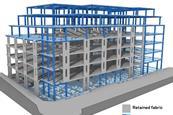







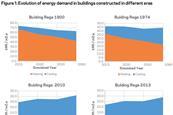


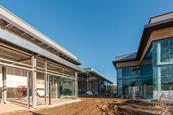
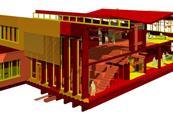



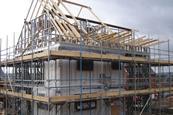
.jpg)